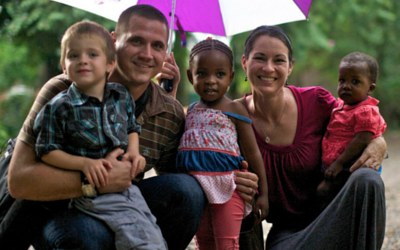
An adoption budget is not an option. It’s a necessity.
How many people do you know that wrote a big check to pay for the cost of an expensive adoption? Probably very few, if any.
Most families that pursue private domestic and international adoptions need to create a budget, save money, earn extra income, fundraise, and apply for adoption grants in order to meet funding goals and payment deadlines.
A budget is simply a plan for spending money. Adoption agencies, governments and grant organizations want to ensure children are placed with families that demonstrate financial stability and are able to provide for the basic needs of the children without creating a financial risk for the families. They require documentation such as tax returns and bank statements to help them evaluate each family’s financial health. Sticking to a reasonable budget shows that your finances are a priority for your family.
If you don’t already have an adoption budget, you will need to develop one to provide detailed financial information for your home study and most adoption grants. The Adoption Funding Kit provides a step-by-step checklist and essential forms to help you set a funding goal, apply for grants and stay organized throughout your adoption. It also includes financial worksheets that include budget categories and automatically calculate your net worth and monthly cash flow. Check it out. It’s FREE!
Do families really need an adoption budget?
In our opinion everyone does. There’s an old saying, “you can manage what you can measure.” If you don’t track how much you spend and on what, you will spend all or more than you earn. Even if you don’t have a documented budget that you adhere to each month, you will need to provide estimates for your home study and to be eligible for most adoption grants.
“If you don’t know where you’re going, any road will take you there.” For most families, unless they establish and follow a budget, their expenses will rise to the level of their income, regardless of how much they earn. No one thinks it will happen to them. It happens time and again. Use an adoption budget as a roadmap to help meet your funding goals and payments.
Looking for a creative way to get started saving and include your entire family? Check out the 52-Week Adoption Savings Challenge and save $1,378 in 1 year.
Click Here To Read Our Personal Budgeting Strategy
**If you’re still unsure or uncomfortable about creating a budget, there are a ton of blogs and free resources online. If you work with an accountant and/or financial advisor, call them to review your current situation. They should advise you regarding the various options available to enable you to make the most informed financial decisions before and after your adoption. It could save you a lot of money**
Are there income requirements for adoption?
Income requirements vary by country, as both the U.S. Citizenship and Immigration Services (USCIS) and overseas governments set different income guidelines for international adoption. Currently, USCIS requires adoptive families to have an earned income equal to 125% of the poverty guidelines. Poverty guidelines vary per state, and per family size, ranging from $18,387 to $47,037 according to 2011 figures. Potential adoptive parents are seldom disqualified based on income alone. Consult your agency for specific requirements that apply to your adoption.
Budgeting Resources
EveryDollar – Dave Ramsey’s free budgeting tool that makes it easy to manage your money on the go.
Mint – Popular online money management tool that pulls all your financial accounts into one place. It allows you to set a budget, track your goals and manage your money. FREE!
Mvelopes – Our favorite budgeting and financial management tool. We’ve used it for the past 5 years to eliminate debt and track expenses to the penny. We have a lifetime subscription! There’s a FREE version and premier plan for $9.95 per month. We recommend the premier plan. Yes, it costs a few dollars every month but we view it as an investment in our long-term financial health. Plus, it includes a free budgeting bootcamp.
Our Freaking Budget – Personal finance blog that documents the love/hate relationship with “our freaking budget” and all things money.
SaveUp – Innovative budgeting site that utilizes prize-linked savings. SaveUp makes budgeting exciting by offering real incentives and prizes while teaching you the fundamentals of saving. It’s fun and the daily games can be addictive. I even won $50. Be sure to check this one out!
The Richest Man in Babylon by George Clason – A timeless classic that teaches personal finance in the form of parables. This book will teach you a simple plan to live within your means, pay off debt, save and invest for the future.
The Total Money Makeover by Dave Ramsey – If you’re struggling with debt or want to develop an effective way to manage your money, this book is a great place to start. If you want more of Dave Ramsey, his website has a ton of useful tools to help you meet your financial goals beyond adoption.



